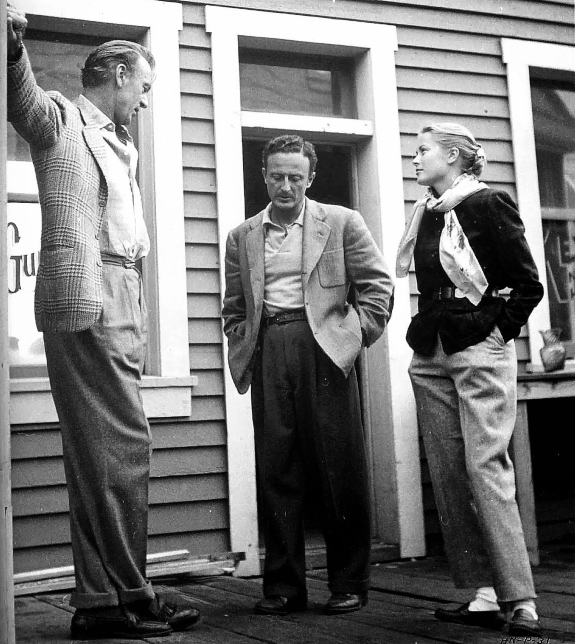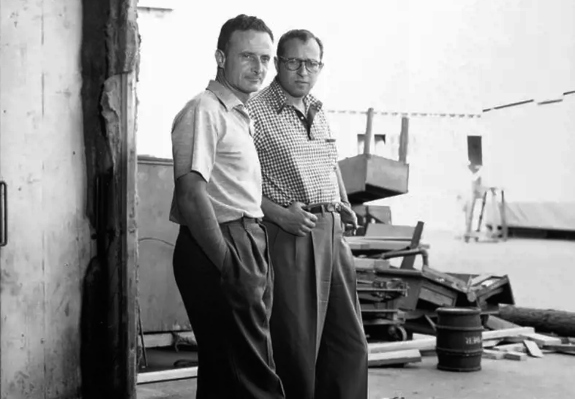Fred Zinneman's High Noon (1952) was one of Hollywood's first psychological westerns, focusing on character rather than action. The story involves a town marshal (played by Gary Cooper) who faces a gang of notorious gunmen alone, after the townspeople refused to help him. High Noon is often seen as an allegory on the Hollywood blacklist. During production of the film, Carl Foreman —the film's screenwriter who was once a member of the Communist Party— was summoned before the House of Un-American Activities Committee (HUAC), the committee that was investigating communism in the USA in the early 1950s. Foreman refused to name names of his former Party members and was consequently labelled an "unfriendly witness" by HUAC and later blacklisted by the Hollywood studios. Foreman eventually wrote the script of High Noon as a metaphor for his own HUAC experience. Like the film's marshal who ends up standing alone, the screenwriter had found himself shunned by his friends and people in the industry with no one having the courage to back him. Knowing he would no longer be able to work in the USA, Foreman sold his partnership share to production partner Stanley Kramer, moved to England and would not return to the States until 1975.
In his 1991 autobiography A Life in the Movies, director Fred Zinnemann gave his own point of view on High Noon, feeling Foreman's point of view was "narrow". Zinnemann had not intended his film to be a metaphor for McCarthyism and the Hollywood blacklist. Instead he thought:
There was something timely -and timeless- about it, something that had a direct bearing on life today. To me it was the story of a man who must make a decision according to his conscience. His town -symbol of a democracy gone soft- faces a horrendous threat to its people's way of life. Determined to resist, and in deep trouble, he moves all over the place looking for support but finding that there is nobody who will help him; each has a reason of his own for not getting involved. In the end he must meet his chosen fate all by himself, his town's doors and windows firmly locked against him. It is a story that still happens everywhere, every day.
 |
| Source: publicacions.ub.es |
 |
| On the set of High Noon with Gary Cooper, Fred Zinnemann and Grace Kelly, the latter having her first major role as Cooper's young Quaker bride. |



Takeaway message, avoid reading critics who have axes to grind
ReplyDeleteGood to hear Zinnemman’s thoughts . Thanks
ReplyDelete